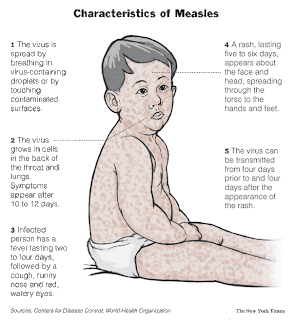


Leprosy Factoids
The disease leprosy has made the headlines this week due to the elevation of sainthood to Jozef De Veuster, also known as Father Damien, who worked with leprosy victims on the Hawaiian island of Molokai from 1873 till his death from leprosy in 1889.
To many Americans leprosy is a disease of the Old and New Testaments, however this disfiguring and potentially fatal disease is alive and well in many parts of the world.
Here are some facts about leprosy and its current state in the world and the United States:
1. Leprosy or Hansen's Disease, is a bacterial infection caused by Mycobacterium leprae (Mycobacterium is the same genus of the organism that causes tuberculosis).
2. It is not very contagious and is likely transmitted person to person via respiratory secretions during close and frequent contacts.
3. It has a relatively long incubation time ranging from 9 months to 20 years till symptoms appear.
4. An early sign of leprosy is typically a spot on the skin that may be slightly redder, darker, or lighter than the person's normal skin. The spot may lose feeling and hair. In some people, the only sign is numbness in a finger or toe. Untreated leprosy can cause some very serious problems with the skin and nerves. Leprosy bacteria attack the nerves in the hands and feet and cause them to become numb. It can also attack the nerves around the eye and damage to the internal lining of the nose.
5. The incidence is declining worldwide due to factors like economic development, BCG immunization and multidrug therapy.
6. The total number of cases reported in early 2009 was 213,036, down from 249,007 the year before.
7. The World Health Organization has targeted the disease for elimination
To many Americans leprosy is a disease of the Old and New Testaments, however this disfiguring and potentially fatal disease is alive and well in many parts of the world.
Here are some facts about leprosy and its current state in the world and the United States:
1. Leprosy or Hansen's Disease, is a bacterial infection caused by Mycobacterium leprae (Mycobacterium is the same genus of the organism that causes tuberculosis).
2. It is not very contagious and is likely transmitted person to person via respiratory secretions during close and frequent contacts.
3. It has a relatively long incubation time ranging from 9 months to 20 years till symptoms appear.
4. An early sign of leprosy is typically a spot on the skin that may be slightly redder, darker, or lighter than the person's normal skin. The spot may lose feeling and hair. In some people, the only sign is numbness in a finger or toe. Untreated leprosy can cause some very serious problems with the skin and nerves. Leprosy bacteria attack the nerves in the hands and feet and cause them to become numb. It can also attack the nerves around the eye and damage to the internal lining of the nose.
5. The incidence is declining worldwide due to factors like economic development, BCG immunization and multidrug therapy.
6. The total number of cases reported in early 2009 was 213,036, down from 249,007 the year before.
7. The World Health Organization has targeted the disease for elimination












